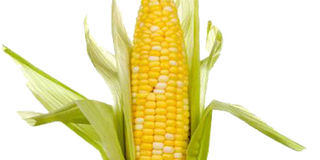How to ensure food safety from farm to market

Food safety involves the handling, preparation and storage of food in such a way that it prevents contamination.
Usually, food contamination starts right from the farm due to various practices and inputs used such as water, manure, equipment and the farmers themselves.
Food safety
Improper storage and excessive use of chemicals also lead to contamination. Chemicals when used excessively are washed away and drawn into water bodies causing death of aquatic animals.
To ensure food safety, several actions should be taken to avoid potential health hazards.
One of the best ways is embracing organic farming and conservation agriculture.
“For instance, at the farm level, you can use rabbit urine both as a bio-pesticide and fertiliser due to its high nutrient content,” says Jackson Mugisha an agronomist at Benedict Mixed Farm in Ziroobwe.
“But ensure the manure is well-decomposed before using it on the farm to avoid contamination,” he says.
While use of manure reduces cost of production significantly and improves the soil structure, it should not be a source of ill-health.
And for consumers, while it may be difficult to determine if things such as vegetables are contaminated by looking at them, check out for bad smell.
For ripe bananas, buy those that are yellow and have dots on the peelings and avoid those which are too yellow since this may be a sign that chemicals have been used to ripen them.
Play a bigger role
Even though food safety cuts across the value chain, farmers must play a bigger role since they are the producers of food.
Avoid using contaminated water when mixing pesticides or during irrigation as this affects the food products.
For vegetable fruits such as tomatoes, stake them to reduce the fruit contamination from the soil.
Fence the farm to provide security against animals that may cause contamination through faecal materials.
Ensure personal hygiene is observed while harvesting farm produce by washing your hands and having appropriate personal protective equipment.
Also, ensure the crates or containers used are clean to avoid contaminating food products.
Use clean water when washing farm produce such as vegetables, fruits and carrots, among others.
Distributors must also ensure the food is well-packaged to avoid contamination.
In the groceries, put foodstuffs on shelves and buy quantities depending on your market demand, as having excess results in food going bad.
At the storage point, sort food products to remove affected ones since they act as a source of contamination to the others.
Allow proper air circulation in your store by ensuring good ventilation to curb high temperatures that may make your food to rot. Vegetables such as sukuma wiki should be kept in fridges to keep them fresh.
For fruits, one should ensure minimum mechanical injuries as this creates an entry point for micro-organisms, making them rot.
For livestock products, proper storage of milk and use of clean containers reduces contamination.




